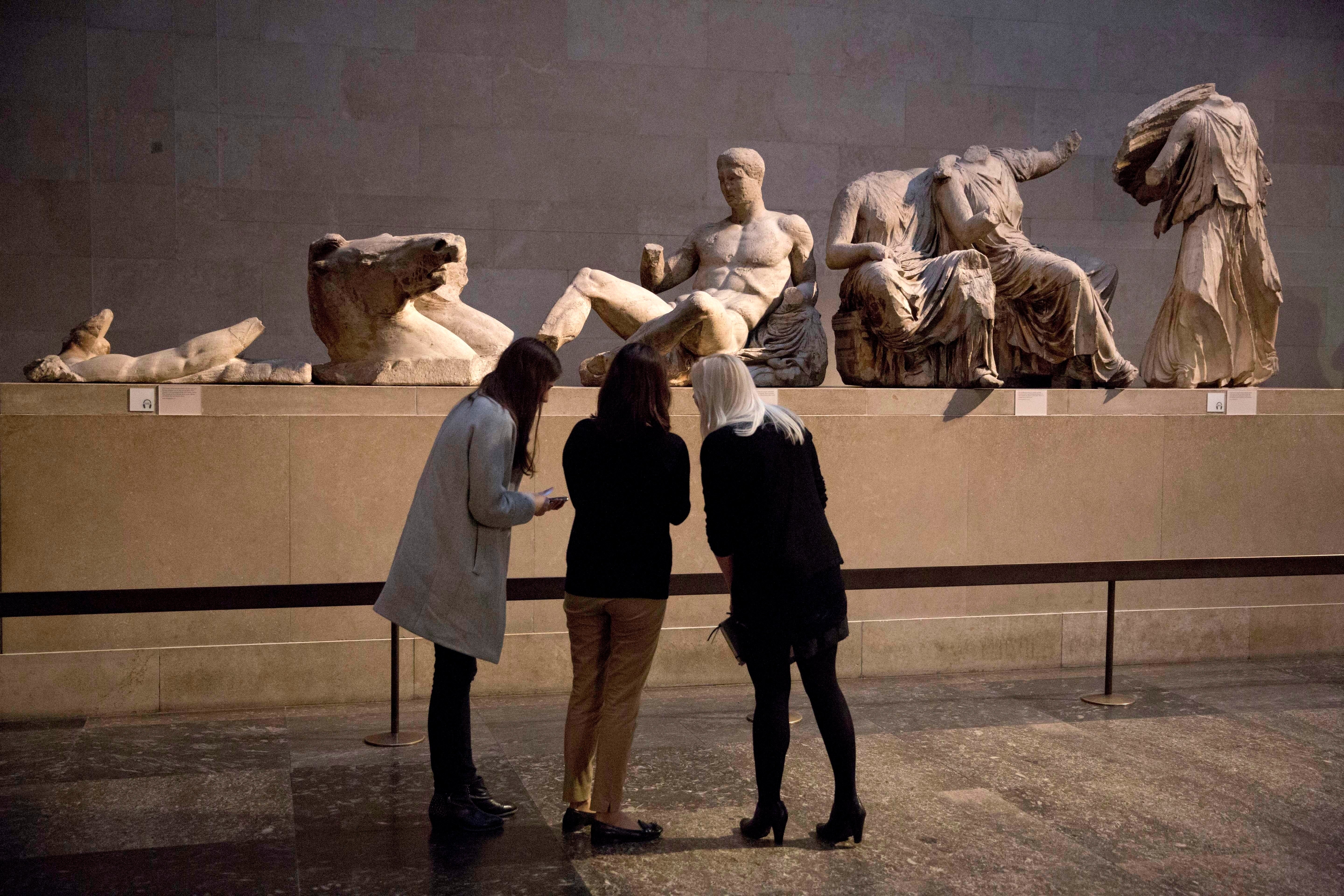Museum: London, Athens could share Parthenon Marbles in deal
The chair of the British Museum says the U.K. and Greece are working on a deal that would see his institution's Parthenon Marbles displayed in both London and Athens

Your support helps us to tell the story
From reproductive rights to climate change to Big Tech, The Independent is on the ground when the story is developing. Whether it's investigating the financials of Elon Musk's pro-Trump PAC or producing our latest documentary, 'The A Word', which shines a light on the American women fighting for reproductive rights, we know how important it is to parse out the facts from the messaging.
At such a critical moment in US history, we need reporters on the ground. Your donation allows us to keep sending journalists to speak to both sides of the story.
The Independent is trusted by Americans across the entire political spectrum. And unlike many other quality news outlets, we choose not to lock Americans out of our reporting and analysis with paywalls. We believe quality journalism should be available to everyone, paid for by those who can afford it.
Your support makes all the difference.The chair of the British Museum said Thursday that the U.K. and Greece are working on a deal that would see his institution’s Parthenon Marbles displayed in both London and Athens.
George Osborne said talks with the Greek government had been “constructive.”
“I think there is a way forward where these sculptures ... could be seen both in London and in Athens, and that will be a win-win for Greece and for us,” he told the BBC.
The antiquities, also known as the Elgin Marbles, mostly consist of the remnants of a frieze that ran around the outer walls of the Parthenon temple on the Acropolis in Athens.
Carved in the 5th century BC, they were taken in the early 19th century by British diplomat Lord Elgin and ended up in the British Museum, which for decades rebuffed Greek demands for their return.
Athens argues the sculptures were taken illegally when Greece was under Ottoman Turkish occupation and should be returned for permanent display beside the other surviving Parthenon sculptures that are in the Greek capital’s Acropolis Museum.
The British Museum i nsists it will not break up its collection, but there has been a change of tone recently as museums around the world seek to address concerns about the way ancient artifacts were acquired during periods of imperial domination and colonial expansion.
The museum has said it wants a “Parthenon partnership” with Greece.
Osborne, a former U.K. Treasury chief, said he was “reasonably optimistic” about striking a deal, but cautioned that “it may well not come to anything.”
“It’s a very hard problem to solve but I think there is a way forward,” he said.
In December, Pope Francis said he would send back to Greece three smaller fragments of sculptures from the Parthenon that the Vatican Museums have held for two centuries.